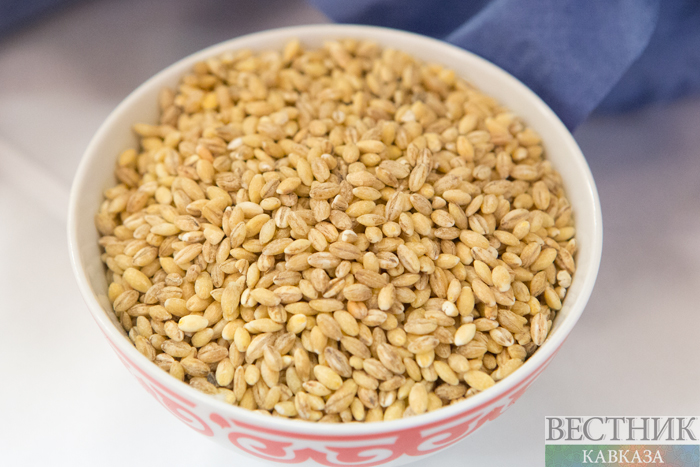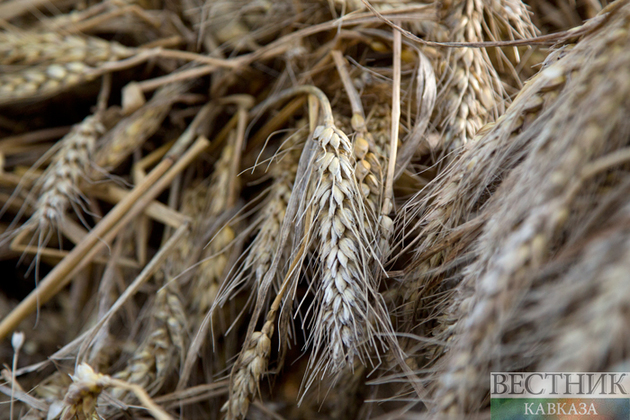Georgia is facing a shortage of wheat in the country, just as the world is bracing for higher prices and precarious supplies of the staple as a result of the conflict in Ukraine. The government has sought to allay fears about the shortage, saying it has ample reserves of flour and that the local harvest of wheat is approaching in a matter of months. But many don’t share that optimism, noting that flour spoils much more quickly than does wheat, leaving the bread-loving country potentially vulnerable at a difficult time. While global wheat shortfalls loom as a result of the situation in Ukraine – pitting two of the world’s largest producers of the grain – Georgia’s shortage in fact dates back to before Russia's special operation.
Eurasianet reports that Georgia began replacing wheat imports with flour last year for reasons of price. In 2021, Russia – which represents about 94 percent of Georgia’s imports of wheat – introduced quotas on its wheat exports, as well as taxes tied to price fluctuations, in order to protect supplies and stabilize prices during the pandemic. Georgian flour mills first started raising alarms about the trend in September. Now they warn that 67 of the country’s 70 flour mills have halted production as they’ve run out of supplies and there are no orders for future supplies. “Importing wheat has made no sense for months since flour has zero import taxes,” while the current tax on Russian wheat amounts to about $120 a metric ton, Levan Silagava, Head of Georgia’s Association of Wheat and Flour Producers, told Interpressnews media on May 13. “That makes a huge difference,” he said.
Switching to flour has done little to reduce Georgia’s dependence on Russia: 96 percent of its flour imports came from its northern neighbor in 2021, a figure that even grew to more than 98 percent in the first months of 2022. Despite increasing local production in recent years, homegrown wheat made up less than 15 percent of the country’s consumption in 2020, the last year for which figures were available.

Georgia’s Ministry of Environment and Agriculture confirmed that flour imports have “largely replaced” wheat imports due to the much cheaper prices of the former. “As of today, we have more than enough in reserves, but we have it as flour and not as wheat,” the ministry said in a statement on May 13. The ministry added that wheat harvest season is in July and August, which should relieve global shortages.
But Silagava, of the Association of Wheat and Flour Producers, noted that the United Nations recommends countries have a two-month reserve of wheat, not flour. “Unfortunately, the current situation doesn’t meet the UN recommendations – we don’t have any wheat reserves,” he said.
Wheat has a longer shelf life than it does once it’s been processed into flour, making it a gamble to have switched to flour just as world supplies are threatened by the situation in Ukraine. “We can store wheat in the country for many years, unlike flour … which can be stored for a month or two,” Keti Kublashvili, the director of the Poti Grain Terminal, told Formula TV.
Georgia could be particularly vulnerable given Russia’s long history of using agricultural trade as a weapon. In the past Moscow has banned imports of Georgian wine and mineral water as punishment in political disputes, and now fears have emerged that it could do the same to wheat exports should Tbilisi do something to again get on Russia’s bad side.
Flour mills have called on the government to even out the costs for wheat and flour by introducing taxes on flour imports, but Prime Minister Irakli Garibashvili rejected the idea, saying it would lead to increased bread prices, which is “not in the interest” of the people.

According to official data, bread and cereals prices increased in Georgia by 4.7 percent from March to April, and by 28.8 percent from April 2021 to April 2022.
“There is more than enough in flour reserves, as well as wheat reserves in the country, and in only a month, a month and a half, we will harvest our wheat,” Garibashvili said during a government session on May 16, without specifying the amount of stocks on hand. “A certain group has politicized this issue and created a fuss artificially.”






